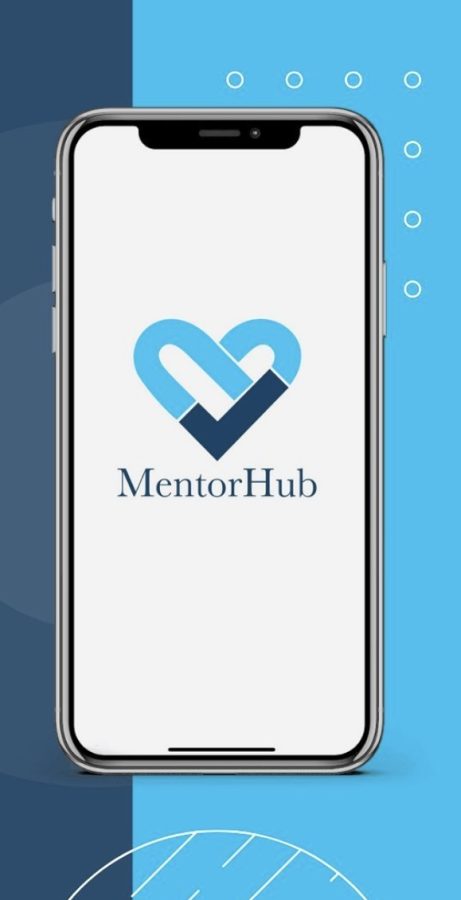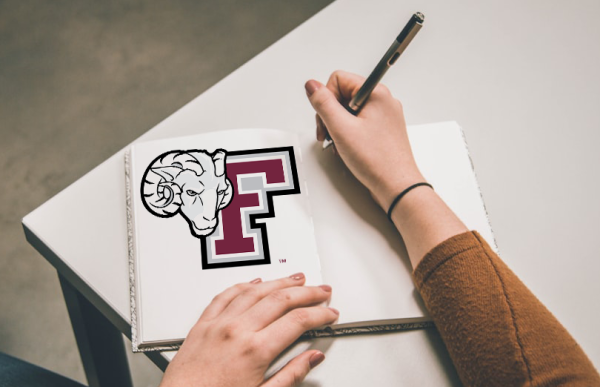Fordham Junior Develops App to Help Underprivileged Youth
Since last summer, Jillian Rodgers, FCRH ’24, has been working in a lab that has been developing an app called MentorHub, which is designed to help underprivileged youth connect with mentors and facilitate discussions between mentors and their mentees. Rodgers has been working on this app alongside the psychology department’s Elizabeth Raposa, Ph.D., as well as many graduate students.
Traditionally, underprivileged children have been more likely to turn to mentor/mentee services like Big Brothers and Big Sisters of America because these types of groups are often more affordable and accessible than therapy. However, as Rodgers explains, many of these mentors are not properly trained to deal with serious mental illness, and any problems that may arise when these children come to them because they are not mental health professionals. “We’re using this app and seeing if it helps facilitate discussion between mentors and mentees and will allow them to work on their mental health and help the mentor to help them,” said Rodgers.
The app doesn’t function as a replacement for a trained medical professional, but it does allow mentors to better understand how their mentees are feeling and connect the mentees to outside resources that may be able to help with their mental health, alongside the mentor. “There’s a mood ring in the app that they do daily so the mentor will know where their mood is at, and then based off of that and additional surveys and things they can do in the app, it will redirect the mentees to apps like Headspace or other online (often free) resources that they can use,” said Rodgers. Besides this feature, MentorHub has many other ways in which mentors and mentees can more easily communicate with each other. There’s a chat feature that allows the mentors and mentees to talk online with each other, because often they only can meet up in person once a month. There are also rewards in place to incentivize mentors and mentees to use the app.
In doing this research, Rodgers has been mainly focused on recruiting participants. Because they are working with youth who are still under 18 years old, there are a lot of consent forms and bureaucratic factors that are involved to ensure that these children can participate in the study. “I’m basically the contact point for the study with our participants so when they fill out our interest screener, I’ll see that come through and I’ll reach out,” said Rodgers.
After this process, an orientation is scheduled with the mentees and mentors to show them how to use the app. To measure the results of the effectiveness of the app, there are baseline, midway and final surveys that the participants have to complete that encompass a variety of factors, such as mentor burnout, and see how these factors change over the course of the 12 weeks that the study is being conducted. Many of the participants in the study have come from preexisting Big Brother and Big Sister organizations; for example, Rodgers has been working with many mentors and mentees that come from a chapter of Big Brothers and Big Sisters in Chattanooga, Tenn.
Rodgers first got involved in this lab because of her future goals to go to graduate school. She knew that she wanted to spend some time doing research at the undergraduate level, but she wanted to make sure that she found a lab that was studying something that she personally found interesting and wanted to pursue. “I really wanted to find a lab that has the same interests as me, and that’s basically just working with underprivileged youth, which is precisely what Dr. Raposa does in her lab.” After receiving a basic introduction to all of the different studies going on in the lab, Rodgers chose MentorHub because she is able to work directly with mentors and youth and understand the relationship between them.
Rodgers said that throughout this process, she has learned a lot about research and how much she enjoys many of the steps that it takes to conduct a research study. She has also gotten the opportunity to talk with the graduate students in the lab as well as Raposa to further inform her decisions about what she might want to do in the future.
Ultimately, Rodgers hopes that this work with MentorHub will show that technology-based interventions can be a beneficial tool in mentorships. Currently, there is a high turnover rate amongst mentors because they can not see that the work that they’re doing is really helping in these children’s lives, and they can experience a lot of burnout. “What we’re hoping is that the app will help facilitate that and help them feel better, it will help with the mental health of the kids because they’ll have resources, it’ll help the mentor because they’ll feel like they’re making a difference and they’ll have actual resources to turn to to help them,” said Rodgers.












































































































































































































